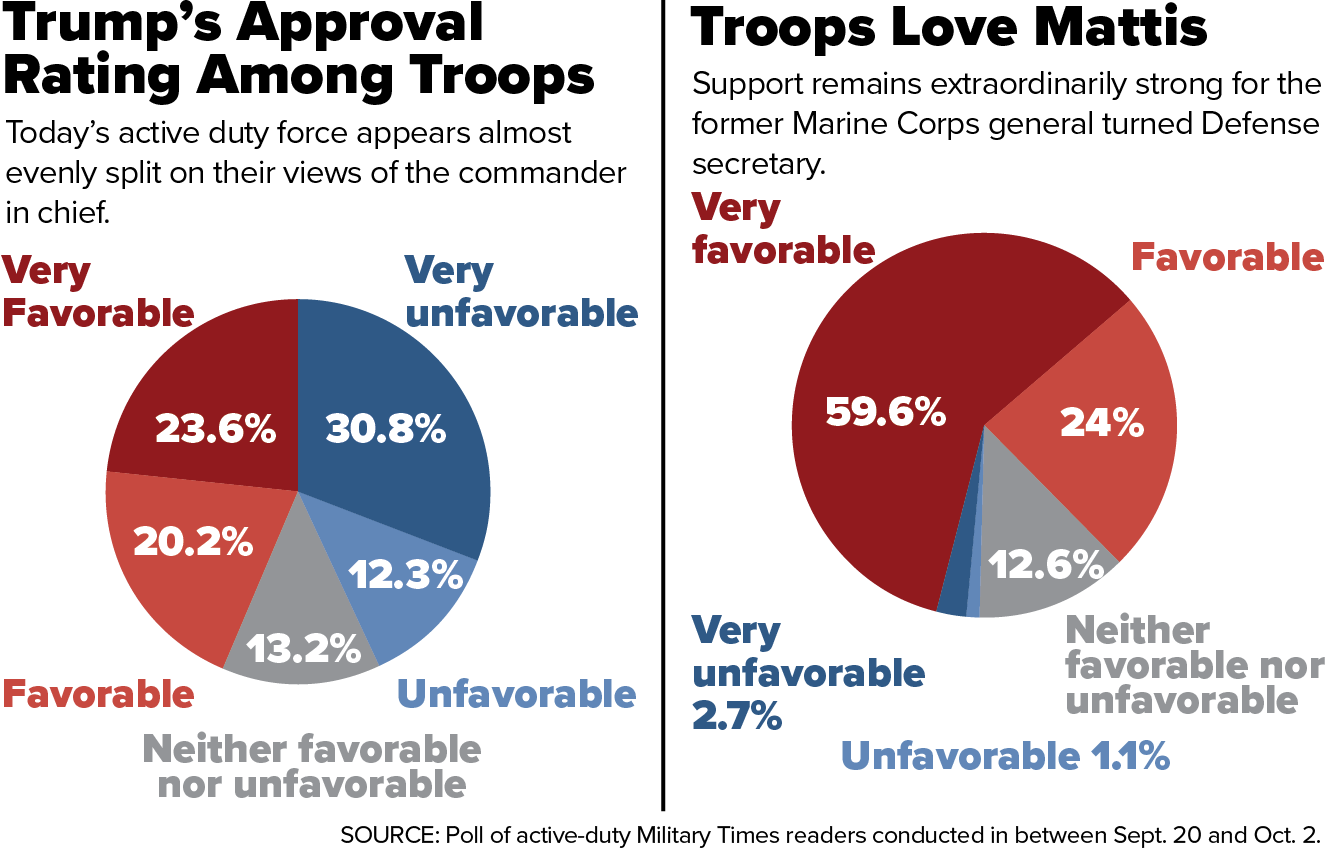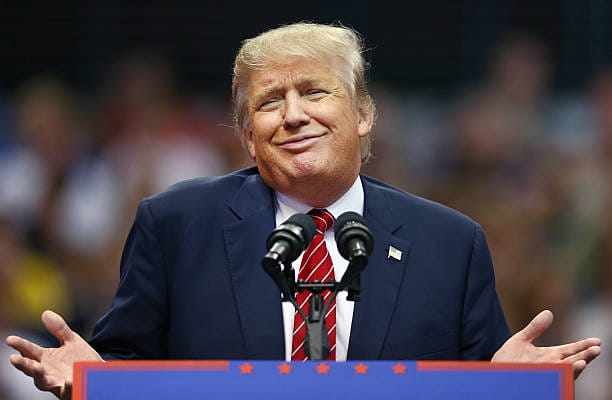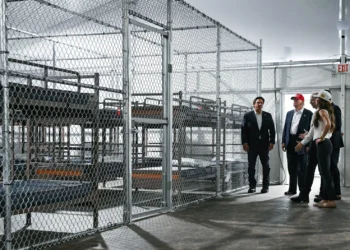President Donald Trump’s approval rating has dropped to a new low, sparking intensified criticism of pollsters. A recent Washington Post-ABC News-Ipsos survey revealed that only 39% of adult Americans approve of Trump’s handling of the presidency, while 55% disapprove.

In a Michigan rally, Trump claimed that pollsters were skewing results by interviewing more Democrat voters than Republicans. This criticism comes as his approval ratings continue to decline.
The new survey gives Trump failing marks for his first 100 days in office, a significant drop from the initial optimism.
Key Takeaways
- A new survey shows Trump’s approval rating at a low 39%.
- 55% of Americans disapprove of Trump’s handling of the presidency.
- Trump has intensified his criticism of pollsters.
- The President claims pollsters are skewing results against him.
- Trump’s approval ratings have been declining steadily.

Trump’s Declining Poll Numbers Since Taking Office
Trump’s approval ratings have been on a downward trajectory, with recent surveys indicating a significant drop in public support. This decline is evident across various polls, reflecting growing dissatisfaction among the American public.
Overview of Recent Survey Results
Recent surveys have highlighted Trump’s dwindling approval ratings. For instance, a New York Times/Sienna College survey found that 55% of respondents disapprove of Trump’s handling of the economy. Similarly, an ABC News/Washington Post/Ipsos poll released on April 27 revealed that 72% of those surveyed believe Trump’s policies are likely to cause a recession.
- A significant drop in approval ratings on economic handling.
- Concerns about the potential for recession due to Trump’s policies.
Comparison to Previous Presidential Ratings
Comparing Trump’s poll numbers to those of previous presidents can provide context. Historically, presidents often experience a honeymoon period with higher approval ratings early in their term. Trump’s ratings, however, have been notably volatile. The decline in his approval ratings is a trend that warrants comparison with past administrations to understand its implications fully.
The Latest Survey: Methodology and Key Findings
A fresh survey conducted by NPR/PBS News/Marist has revealed significant insights into Trump’s initial 100 days. The poll, which was conducted from April 21-23, provides a comprehensive overview of public opinion on Trump’s performance.
Survey Details: 1,439 Adults Polled from April 21-23
The survey polled 1,439 adults, offering a robust sample size for understanding the sentiments of the American public regarding Trump’s first 100 days in office. The methodology involved a thorough analysis to ensure representative results.

Major Areas of Disapproval
The survey highlighted several areas where Trump faced significant disapproval. Notably, 45 percent of respondents gave Trump a failing grade for his first 100 days, with only 23 percent giving him an A grade. The major areas of disapproval included his handling of the economy, immigration policies, and communication style.
| Area of Disapproval | Percentage |
|---|---|
| Handling of Economy | 40% |
| Immigration Policies | 55% |
| Communication Style | 50% |
Areas Where Trump Maintains Support
Despite the overall disapproval, there were areas where Trump maintained significant support. For instance, his stance on certain economic policies and his efforts on judicial appointments were viewed favorably by a substantial portion of the respondents.
The survey results underscore the divided public opinion on Trump’s presidency, highlighting both the areas of concern and the aspects where he continues to enjoy support.

Trump Attacks Pollsters: A Pattern of Criticism
In a pattern that is becoming increasingly familiar, Trump has lashed out at pollsters, claiming bias in their methodologies. This criticism is not isolated but rather part of a broader narrative that has been unfolding since Trump’s ascension to the presidency.
Recent Statements Against Polling Organizations
Recently, Trump claimed that pollsters were deliberately interviewing more Democrat voters than Republicans to skew the results. This assertion is not supported by evidence and contradicts the methodologies employed by most reputable polling organizations. Trump’s accusations against pollsters have been a recurring theme in his public discourse. As he stated,
“The polls are rigged, folks, they’re rigged.”
Such statements underscore his skepticism towards polling data that does not favor him.
History of Trump’s Relationship with Pollsters
Trump’s history with pollsters dates back to his presidential campaign. Throughout his campaign and presidency, Trump has frequently criticized polls that do not reflect positively on him. This pattern of criticism suggests a deep-seated distrust in the polling process. Historically, Trump has targeted specific polling organizations, questioning their methodologies and the integrity of their data. The controversy surrounding Trump’s relationship with pollsters highlights the complex dynamics between political figures and the entities that measure public opinion.
The tension between Trump and pollsters is not just about the numbers; it’s about the narrative. Trump’s narrative is that the polls are biased, and this narrative is part of a larger story about the perceived disconnect between the political establishment and the people.
Trump’s First 100 Days Grade: Breaking Down the Numbers
The first 100 days of Trump’s presidency have been under intense scrutiny, with a recent survey revealing a complex picture of public opinion.
The New York Times/Sienna College survey found that majorities of those surveyed disapprove of Trump’s handling of the economy, immigration, and the federal bureaucracy.

Economic Policy Ratings
Trump’s economic policies have been a subject of significant debate. The survey indicates that 52% of respondents disapprove of Trump’s handling of the economy, while 42% approve.
This disapproval is reflected in various aspects of economic policy, including job creation and trade policies.
Immigration Policy Shift: From Strength to Weakness
Immigration policy, once considered a strength for Trump, has become a significant area of discontent. The survey shows that 55% of respondents disapprove of Trump’s handling of immigration.
This shift in public opinion can be attributed to various factors, including changes in border control policies and the handling of undocumented immigrants.
Tariff Implementation Feedback
The implementation of tariffs has also received mixed reviews. While some supporters see it as a step towards protecting American industries, others criticize it for potentially sparking trade wars.
The survey reveals that 45% of respondents approve of Trump’s tariff policies, while 40% disapprove.
| Policy Area | Approve (%) | Disapprove (%) |
|---|---|---|
| Economic Policy | 42 | 52 |
| Immigration Policy | 40 | 55 |
| Tariff Implementation | 45 | 40 |

GOP Concerns About Trump’s Approval Ratings
GOP leaders are expressing heightened concern over Trump’s dwindling approval numbers, as a recent survey revealed that 55 percent of respondents disapprove of his handling of the presidency.
Republican Leadership Responses
Republican leadership has responded to Trump’s declining approval ratings with a mix of caution and strategic concern. Some leaders have publicly defended Trump’s policies, while others have expressed private worries about the potential impact on the party’s overall performance.
- Key Republican leaders are strategizing on how to mitigate the effects of Trump’s low approval ratings.
- There is a growing consensus that the party needs to address the concerns of Trump’s detractors.
Potential Impact on Congressional Support
The potential impact of Trump’s low approval ratings on congressional support is significant. Lawmakers are closely watching the situation, as it may influence their decisions on key legislative votes.
A notable concern is that Republican lawmakers in competitive districts may distance themselves from Trump to protect their own electoral prospects.
Trump’s 2024 Approval Rating Trajectory
Recent polls indicate a concerning trend for Trump as his 2024 approval ratings continue to decline. A CNN poll over the weekend found Trump’s approval rating at 41 percent, the lowest for any president at this point in their term dating back to at least Dwight Eisenhower.

Comparison to Previous Presidential Terms
Historically, Trump’s approval ratings have been lower than many of his predecessors at this stage in their presidency. This trend is significant as it reflects on his potential 2024 election prospects. The comparison to previous presidential terms highlights a concerning trajectory for Trump.
Demographic Breakdown of Support
The demographic breakdown of Trump’s support reveals interesting insights. While his core supporters remain loyal, there is a noticeable decline in approval among certain demographics, which could impact his latest Trump approval ratings.
Regional Variations in Trump’s Popularity
Regional variations also play a crucial role in understanding Trump’s approval ratings. Some regions have shown stronger support for Trump, while others have seen a significant decline, contributing to the overall trend in his 2024 approval rating trajectory.
In conclusion, Trump’s 2024 approval rating is a critical aspect of his political landscape, influenced by various factors including demographic and regional support.

Pollsters Criticized by Trump: Who They Are and Their Defense
The controversy between Trump and pollsters has intensified, with major polling organizations facing criticism from the former President. Trump’s claims that pollsters are deliberately skewing results by interviewing more Democrat voters than Republicans have sparked a heated debate.
Major Polling Organizations in Trump’s Crosshairs
Several prominent polling organizations have been targeted by Trump’s criticism, including Rasmussen Reports, Pew Research Center, and Quinnipiac University Poll. These organizations have been conducting polls on Trump’s approval ratings and other significant issues. For instance, a recent survey by Quinnipiac University found that Trump had a disapproval rating of 54% among registered voters.
How Pollsters Are Responding to Criticism
In response to Trump’s criticism, pollsters have defended their methodologies, emphasizing the importance of statistical sampling and weighting to ensure representative results. Many polling organizations, such as Pew Research Center, have published detailed explanations of their methodologies to address concerns about bias. For example, Pew Research Center uses a combination of landline and cell phone interviews to reach a diverse range of respondents.
Methodology Defense: How Accurate Are the Polls?
Pollsters argue that their methodologies are designed to provide accurate and reliable data. They point out that their results are often corroborated by other polls using different methodologies. For instance, a comparison of polling results from different organizations shows a high degree of consistency in Trump’s disapproval ratings. Some of the key factors that contribute to the accuracy of polls include:
- Random sampling techniques
- Weighted analysis to match demographic characteristics
- Multiple modes of data collection (e.g., phone, online)
Trump’s Failing Poll Grades: Specific Policy Areas
The public’s assessment of Trump’s first 100 days has been largely negative, according to a recent NPR/PBS News/Marist poll. With 45% of Americans giving Trump an F grade, it’s evident that his performance was not well-received across various policy areas.
Foreign Policy Assessment
Trump’s foreign policy decisions during his initial 100 days were met with significant disapproval. The poll found that many Americans were dissatisfied with his approach to international relations and global diplomacy. Key areas of contention included his handling of NATO and interactions with North Korea.
Domestic Policy Evaluation
On the domestic front, Trump’s policies also faced considerable criticism. The poll highlighted discontent with his economic policies, including tax reform and deregulation efforts. Specifically, many felt that his policies favored the wealthy over the average American.
Leadership and Communication Ratings
Trump’s leadership style and communication approach were also under scrutiny. The poll indicated that a significant portion of the public was unhappy with his divisive rhetoric and perceived lack of transparency. A table summarizing the poll’s key findings is provided below.
| Policy Area | Approval Rating | Disapproval Rating |
|---|---|---|
| Foreign Policy | 35% | 55% |
| Domestic Policy | 40% | 50% |
| Leadership & Communication | 30% | 60% |

Republican Party’s Internal Polling on Trump
The GOP’s internal polling on Trump reveals a complex picture, marked by differences between public and private assessments of the president. As Trump’s approval rating has dropped to a new low, with 55 percent disapproving of his handling of the presidency, the Republican Party’s internal polls offer a nuanced view of his standing within the party.
Differences Between Public and Party Polls
Internal polls conducted by the Republican Party often show a more favorable view of Trump compared to public polls. This discrepancy highlights the different expectations and priorities between the general public and Republican Party loyalists.
For instance, while public polls may focus on broad approval ratings, internal party polls might delve into specific policy issues that resonate with Republican voters, such as tax reform or judicial appointments.
Strategic Considerations for the GOP
The GOP faces strategic challenges in addressing Trump’s low approval ratings. As the party looks ahead to future elections, it must consider how to balance support for Trump with the need to appeal to a broader electorate.
According to a
“The GOP’s internal polling indicates a need for nuanced messaging that addresses the concerns of both party loyalists and swing voters.”
This approach could involve highlighting Trump’s achievements on key issues while also distancing the party from controversial aspects of his presidency.
By understanding the differences between public and party polls, the GOP can develop targeted strategies to improve Trump’s approval ratings and enhance the party’s electoral prospects.
The Trump vs. Pollsters Controversy: Historical Context
The ongoing controversy between Trump and pollsters is not an isolated incident; it has historical precedents that provide valuable context. Previous presidents have also had complex relationships with polling, often reflecting the political climate of their time.
Previous Presidents’ Relationships with Polling
Historically, presidents have viewed polling with a mix of fascination and skepticism. For instance, President Lyndon B. Johnson was known to be highly sensitive to polling results, often using them to gauge public opinion on his policies, including the Vietnam War. In contrast, President Richard Nixon was notorious for his distrust of polls, sometimes going as far as to try to manipulate public opinion to his advantage.
A table comparing the polling relationships of various presidents can provide further insights:
| President | Attitude Towards Polls | Notable Actions |
|---|---|---|
| Lyndon B. Johnson | Sensitive to polling results | Used polls to gauge public opinion on Vietnam War |
| Richard Nixon | Distrustful of polls | Tried to manipulate public opinion |
| Donald Trump | Critical of pollsters | Claimed polls were skewed against him |
The Role of Polls in Modern Politics
In modern politics, polls play a crucial role in shaping public discourse and influencing political decisions. They provide a snapshot of public opinion at a given time, helping politicians understand their constituents’ views. However, the accuracy and methodology of polls are often debated, with some arguing that they can be skewed by factors like sampling biases.
Trump’s claims that pollsters deliberately interview more Democrat voters than Republicans to skew results echo concerns about polling methodology. Understanding the historical context and the role of polls in modern politics can help clarify the significance of the Trump vs. pollsters controversy.
Conclusion: Implications for Trump’s Administration Moving Forward
As Trump’s poll numbers continue to decline, his administration faces significant challenges ahead. With 55 percent of Americans disapproving of his handling of the presidency, the implications for his 2024 approval rating trajectory are concerning.
The ongoing controversy between Trump and pollsters has raised questions about the accuracy of polling methods and the role of polls in modern politics. Trump’s criticism of pollsters is not new, but the intensity has increased as his approval ratings have dropped.
The declining trump poll numbers have significant implications for Trump’s administration. As the 2024 presidential election approaches, Trump’s team will need to address the concerns of the American public to improve his approval ratings. The trump vs pollsters controversy is likely to continue, with potential repercussions for Trump’s administration.
Understanding the dynamics of trump approval rating 2024 will be crucial in the coming months. As the political landscape evolves, Trump’s administration will need to adapt to changing public opinion and work towards improving his poll numbers.
FAQ
Why is Trump criticizing pollsters?
Trump is criticizing pollsters because new surveys show his declining approval ratings, and he claims that pollsters are deliberately interviewing more Democrat voters than Republicans to skew the results.
What are Trump’s current poll numbers?
According to a recent Washington Post-ABC News-Ipsos poll, Trump’s approval rating is at 39 percent, with 55 percent disapproving of his handling of the presidency.
How have Trump’s poll numbers changed since he took office?
Trump’s poll numbers have been declining since he took office, with recent surveys showing a significant drop in his approval ratings, particularly in areas such as economic policy and immigration.
What was the methodology of the latest survey that gave Trump failing marks?
The survey was conducted from April 21-23, polled 1,439 adults, and found significant disapproval of Trump’s handling of various issues, with 45 percent of respondents giving him a failing grade for his first 100 days.
What are the GOP concerns about Trump’s approval ratings?
GOP concerns about Trump’s approval ratings are growing, with Republican leadership responding to the declining numbers and considering the potential impact on congressional support.
How are pollsters responding to Trump’s criticism?
Pollsters criticized by Trump are major organizations that have defended their methodologies, responding to criticism and defending the accuracy of their polls.
What are the implications of Trump’s low approval ratings for his 2024 approval rating trajectory?
The latest polls show a declining trend in Trump’s approval ratings, with significant regional variations in his popularity, which is a concern for many Republicans.
How does Trump’s relationship with pollsters compare to previous presidents?
Trump’s relationship with pollsters has historical context, with previous presidents having complex relationships with polling, and the role of polls in modern politics is significant.
What are the specific policy areas where Trump is receiving failing grades?
Trump is receiving failing grades in specific policy areas, including foreign policy, domestic policy, and leadership and communication ratings.
What are the strategic considerations for the GOP regarding Trump’s low approval ratings?
The Republican Party’s internal polling on Trump reveals differences between public and party polls, and lawmakers are considering the implications of Trump’s low approval ratings.





















































